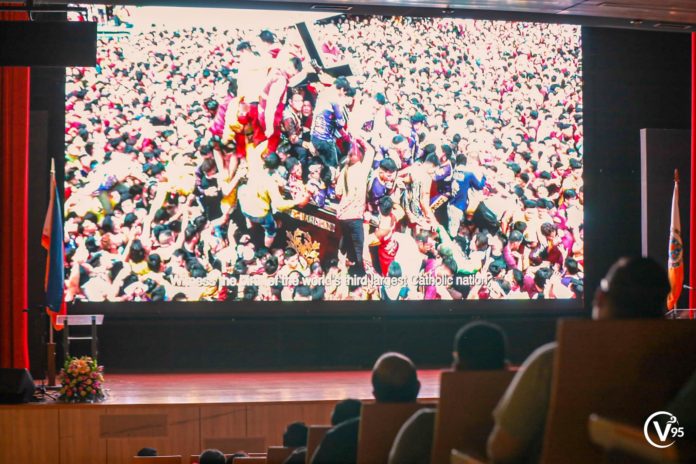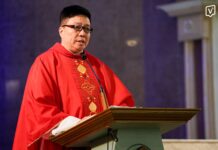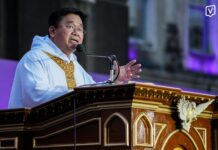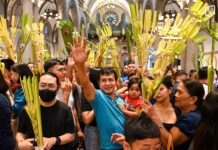
THE FUTURE of Christianity lies in evangelizing people, especially families, like how previous generations introduced the faith and integrated it into the lives of Filipinos.
This was the message of the five-part documentary film “The Pilgrim: 500 Years of Catholic Faith in the Philippines,” produced by Radyo Veritas 846, Radyo Veritas Asia and UST, and screened at the auditorium of the Blessed Pier Giorgio Frassati, O.P. Building on March 29.
“The Church would just continue its task of evangelization, to bring Christ to people and have them experience in a more personal way, be that personal, individual or family,” Radyo Veritas Asia general manager Fr. Victor Sadaya, CMP told the Varsitarian.
The documentary “endeavors to trace the growth of Christian expansion in the Philippines from 1521 up to today,” said UST Vice Rector for Religious Affairs Fr. Pablo Tiong, O.P.
Growth would not have been possible without the sacrifices of martyrs such as Filipino saints Lorenzo Ruiz and Pedro Calungsod, who stood up to their tormentors and refused to renounce their faith.
The expansion of Christianity was also due to important religious icons intertwined with Philippine culture and traditions, particularly the images of the Sto. Niño and the Black Nazarene.
Educational institutions likewise played a part in evangelization, like the Universidad de San Ignacio (1590 to 1768), Colegio de San Ildefonso (1595 to 1769) and the University of Santo Tomas (1611 to present).
During the American and Japanese occupations, Christians fought against secularization and abuses, with priests and nuns unwavering in their duties.
With private media outlets silenced by the Martial Law regime, Radyo Veritas, founded in 1969, became an instrument of truth, covering the assassination of former senator Benigno “Ninoy” Aquino III in 1983 and the subsequent downfall of the Marcos dictatorship.
That downfall culminated in the four-day uprising in 1986 along Epifanio de los Santos Ave., spearheaded by Manila Archbishop Jaime Cardinal Sin, who called on Filipinos to protect two defectors, Juan Ponce Enrile and Fidel Ramos, over Radyo Veritas.
For Sadaya, the Covid-19 pandemic made people closer to God.
“After all, what we need is to satisfy the spiritual hunger of people because many have realized that all that we have is nothing, is useless,” he said. “But people have realized that we only need God who can really sustain us in our daily life.”
“The Pilgrim” featured archival footage, interviews from Church leaders and experts, and historical dramatization. It was shown in a caravan to Catholic schools nationwide. Justin Benedict T. Lim













